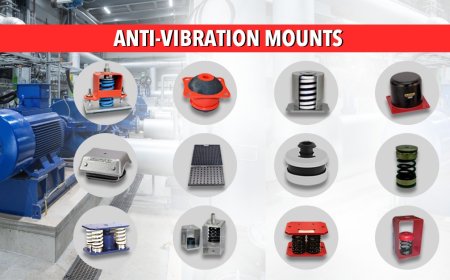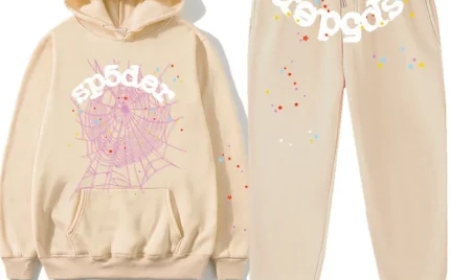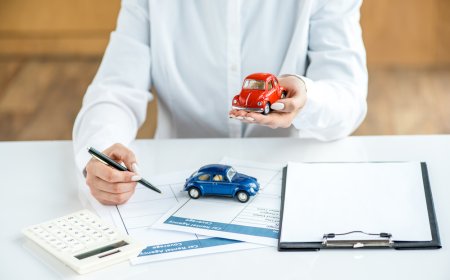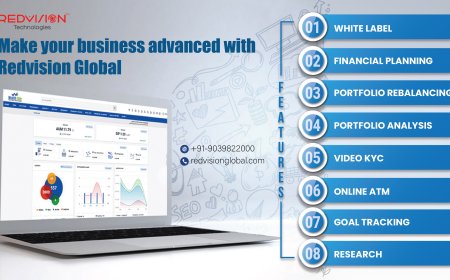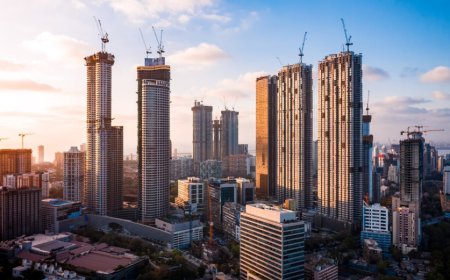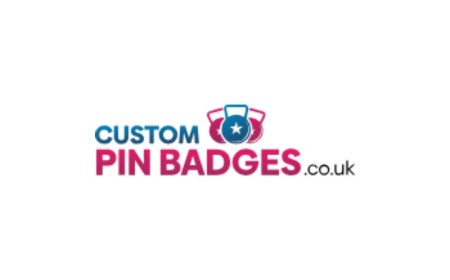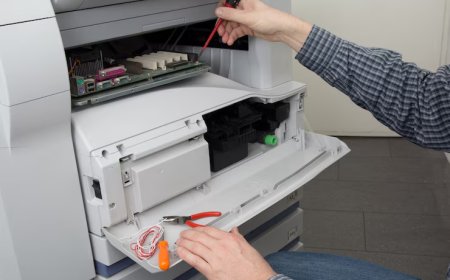How to Recycle Correctly in Columbus Washington Curbside Pickup
How to Recycle Correctly in Columbus, Washington Curbside Pickup Recycling is more than just a civic duty—it’s a critical component of environmental sustainability, resource conservation, and community health. In Columbus, Washington, curbside recycling programs provide residents with a convenient way to divert waste from landfills and support local recycling infrastructure. However, incorrect rec
How to Recycle Correctly in Columbus, Washington Curbside Pickup
Recycling is more than just a civic duty—it’s a critical component of environmental sustainability, resource conservation, and community health. In Columbus, Washington, curbside recycling programs provide residents with a convenient way to divert waste from landfills and support local recycling infrastructure. However, incorrect recycling practices can contaminate entire batches of otherwise clean materials, leading to increased costs, reduced efficiency, and even the rejection of loads at processing facilities. This guide offers a comprehensive, step-by-step breakdown of how to recycle correctly under Columbus’s curbside pickup system, ensuring your efforts make a measurable difference. Whether you’re a longtime resident or new to the area, understanding the rules, best practices, and local nuances of recycling in Columbus is essential to maximizing your impact.
Step-by-Step Guide
Recycling correctly begins with knowing exactly what goes in your bin—and what doesn’t. Columbus, Washington, follows a single-stream recycling model, meaning all acceptable recyclables can be placed together in one bin. But “single-stream” does not mean “anything goes.” The following steps will walk you through the entire process, from preparation to placement.
Step 1: Obtain the Correct Bin
Before you begin recycling, ensure you have the official recycling bin provided by your waste hauler. In Columbus, most curbside recycling services are managed through contracted providers, and the standard bin is a 96-gallon wheeled cart with a green lid and a recycling symbol. If you don’t have one, contact your service provider to request it. Do not use personal containers such as trash cans, plastic bins, or cardboard boxes—these are not accepted during curbside collection.
Step 2: Know What’s Acceptable
Acceptable materials in Columbus curbside recycling include:
- Cardboard: Flattened boxes, shipping containers, and paperboard (like cereal boxes). Remove all plastic tape, packing peanuts, and bubble wrap.
- Paper: Office paper, newspapers, magazines, catalogs, and junk mail. Do not include soiled paper, wax-coated paper, or thermal receipts.
- Plastic bottles and containers: Numbers 1 (PET) and 2 (HDPE) are most commonly accepted. This includes water bottles, milk jugs, detergent bottles, and shampoo containers. Rinse thoroughly.
- Glass bottles and jars: Clear, green, and brown glass. Remove lids and caps. Do not include ceramics, mirrors, or light bulbs.
- Metal cans: Aluminum and steel food and beverage cans. Rinse and flatten if possible to save space.
Always check the bottom of plastic items for the resin identification code (the triangle with a number inside). Only accept numbers 1 and 2 unless otherwise specified by your hauler. Some newer programs may accept
5 plastics, but this is not standard in Columbus as of 2024.
Step 3: Prepare Items for Recycling
Proper preparation prevents contamination and ensures your recyclables are processed efficiently.
- Rinse all containers: Food residue attracts pests and degrades material quality. A quick rinse with leftover dishwater is sufficient—no need to scrub or use soap.
- Remove caps and lids: Plastic caps are often made from a different polymer than the bottle and can interfere with sorting. Remove them and dispose of them in the trash unless your local program explicitly accepts them.
- Flatten cardboard and boxes: This saves space in your bin and allows haulers to collect more material per trip. Remove all non-paper elements like plastic windows, foam inserts, or tape.
- Keep items loose: Never bag your recyclables in plastic trash bags. Bags jam sorting machinery and often end up in landfills. Place items directly into the bin.
Step 4: Know What’s Not Acceptable
Contamination is the number one reason recycling loads are rejected. Avoid placing the following in your curbside bin:
- Plastic bags and wraps: These include grocery bags, bread bags, and zip-top bags. They缠绕 sorting equipment. Many grocery stores offer drop-off locations for plastic film recycling.
- Styrofoam: Even if labeled “recyclable,” Styrofoam (polystyrene) is not accepted in Columbus curbside programs due to lack of local processing infrastructure.
- Food-soiled paper: Pizza boxes with grease stains, paper towels, napkins, and used tissues cannot be recycled. Compost these if possible.
- Electronics: TVs, computers, phones, and batteries require special handling. Drop them off at designated e-waste collection sites.
- Hazardous materials: Paint, chemicals, motor oil, and aerosol cans are dangerous and must be taken to a household hazardous waste facility.
- Textiles and clothing: Donate wearable items or take them to textile recycling centers. They do not belong in curbside bins.
- Diapers and sanitary products: These are considered biohazard waste and must go in the trash.
Step 5: Place Your Bin Correctly
Even perfectly sorted recyclables can be missed if not placed properly. Follow these placement rules:
- Place your bin at the curb by 6:00 a.m. on your scheduled collection day.
- Keep the bin at least three feet away from obstacles like mailboxes, trees, parked cars, or other bins.
- Ensure the lid is fully closed. Overfilled bins with lids open may not be collected.
- Do not place items beside or on top of the bin. Only contents inside the bin are collected.
Step 6: Track Your Collection Schedule
Recycling pickup days vary by neighborhood. Use the official Columbus Waste & Recycling calendar, available online through the City of Columbus Public Works portal. Enter your address to confirm your exact pickup day. If your collection day falls on a holiday, check for a one-day delay notice. Do not assume your schedule remains unchanged year-round.
Step 7: Report Missed Collections
If your bin was not collected on your scheduled day, inspect it for common issues: lid not closed, bin overfilled, or placed too close to an obstacle. If everything was correct, report the missed pickup using the online form on the city’s waste services website. Most issues are resolved within 48 hours.
Best Practices
Going beyond the basics ensures you’re maximizing your environmental impact and supporting the long-term viability of Columbus’s recycling system. Here are proven best practices adopted by top-performing households in the area.
Practice Consistent Sorting
Establish a dedicated recycling station in your kitchen or garage. Use separate bins or containers for paper, plastics, and metals. This makes it easier to rinse, sort, and transfer items to your curbside bin without last-minute confusion.
Reduce Before You Recycle
Recycling is the last step in the waste hierarchy—reduce, reuse, recycle. Choose products with minimal packaging, buy in bulk, and avoid single-use items. Reusable water bottles, cloth shopping bags, and glass containers reduce your overall waste footprint more effectively than recycling alone.
Compost Organic Waste
Food scraps, coffee grounds, eggshells, and yard trimmings make up nearly 30% of household waste. While not part of curbside recycling, Columbus offers composting drop-off locations and seasonal curbside compost collection for residents enrolled in the Green Waste Program. Sign up at the city’s sustainability portal to divert organics from landfills and create nutrient-rich soil.
Keep a “Recycling Cheat Sheet” Handy
Print or save a digital version of the acceptable materials list from the city’s website. Tape it to your fridge or keep it in your phone’s notes. When in doubt, consult it before tossing an item into the bin. A quick check prevents contamination and saves processing facilities time and money.
Teach Household Members
Children, roommates, and visitors may not be familiar with local rules. Post a simple visual guide near your recycling bin with icons for “Yes,” “No,” and “Check.” Make recycling a shared responsibility to ensure consistency.
Monitor Your Bin’s Weight and Fill Level
Overfilled bins can tip over or spill during collection, creating litter and contamination. If you consistently generate more recyclables than your bin holds, request a second bin from your hauler. Many providers offer this service at no additional cost.
Participate in Recycling Education Events
The City of Columbus and local nonprofits host free workshops on recycling, composting, and waste reduction. Attend these events to stay updated on policy changes and learn from experts. They often include free reusable bags, compost bins, or recycling guides.
Support Local Recycling Markets
When you recycle correctly, you help sustain local recycling facilities and manufacturers who use recycled content. Choose products made with post-consumer recycled materials—this closes the loop and encourages continued investment in recycling infrastructure.
Tools and Resources
Success in recycling depends on access to accurate, up-to-date information. Below are essential tools and resources for Columbus residents.
Official City of Columbus Waste & Recycling Portal
The primary source for recycling rules, collection calendars, and service updates is the City of Columbus Public Works website. Visit columbuswa.gov/waste for downloadable PDF guides, interactive maps, and real-time collection alerts.
Recycling Locator Tool
For items not accepted curbside—such as electronics, batteries, paint, or textiles—use the Washington State Department of Ecology’s Recycling Locator. Enter your ZIP code and item type to find the nearest drop-off center. This tool is updated quarterly and includes directions and hours.
Mobile Apps
Download the “Recycle Coach” app (available for iOS and Android). It sends personalized reminders for your pickup day, provides a searchable database of acceptable items, and includes a “What Goes Where?” feature that uses image recognition to identify unfamiliar items. Over 15,000 Columbus households use this app daily.
Local Drop-Off Centers
Several locations in and around Columbus accept specialty items:
- Columbus Recycling Center: Accepts plastic film, batteries, and metal scrap. Open Tuesdays and Saturdays, 8 a.m.–4 p.m.
- Home Depot Columbus: Drop-off for batteries and plastic bags.
- Best Buy Columbus: Free electronics recycling for TVs, computers, and small appliances.
- St. Vincent de Paul Thrift Store: Accepts gently used clothing, shoes, and household goods.
Community Education Kits
Request a free “Recycling Starter Kit” from the city’s sustainability office. Each kit includes a reusable tote bag, a laminated recycling guide, a small countertop bin for kitchen sorting, and a calendar with holiday schedule changes. Kits are available at the City Hall front desk or by mail request.
Online Waste Audit Tools
Use the EPA’s Waste Reduction Model (WARM) calculator to estimate how much carbon you’ve saved by recycling. Input your household’s recycling volume and receive a personalized report showing your environmental impact compared to the national average.
Local Environmental Groups
Join the Columbus Green Alliance, a volunteer-led nonprofit that organizes monthly recycling drives, neighborhood cleanups, and educational seminars. Their newsletter provides exclusive tips, early access to new programs, and opportunities to influence local waste policy.
Real Examples
Understanding recycling rules becomes clearer when you see real-life scenarios. Below are three common situations faced by Columbus residents—and how to handle them correctly.
Example 1: The Pizza Box
After a family movie night, you’re left with a greasy pizza box. You know cardboard is recyclable, but the bottom is stained with oil. What do you do?
Correct Action: Tear off the clean top half of the box and place it in the recycling bin. The greasy bottom portion, which is contaminated with food oil, should go in the compost bin (if available) or the trash. Never recycle a fully soiled box—it ruins the entire batch.
Example 2: The Plastic Lid
You finish a yogurt cup and want to recycle it. The lid is plastic, but it’s a different color than the container. Do you remove it?
Correct Action: Yes. Remove the lid and throw it in the trash. Most yogurt lids are made from
5 plastic (polypropylene), which is not accepted in Columbus curbside recycling. The cup itself, if labeled #1 or #2 and rinsed, can be recycled. Always check the resin code.
Example 3: The Plastic Bag Full of Bottles
You’ve collected 20 plastic bottles and put them in a grocery bag to save space before taking them to the curb. Is this okay?
Correct Action: No. Plastic bags jam sorting machines at recycling facilities. Empty the bottles directly into your curbside bin. If you have many bags to dispose of, take them to a designated plastic film drop-off at a local grocery store. Never put plastic bags in the recycling cart.
Example 4: The Broken Glass Jar
You accidentally dropped a glass jam jar, and it shattered. Can you recycle the pieces?
Correct Action: No. Broken glass is dangerous for workers and cannot be safely sorted. Wrap the shards in newspaper, label the bundle “Broken Glass,” and place it in the trash. Never put broken glass in the recycling bin.
Example 5: The Old Laptop
You upgraded your computer and now have an old laptop gathering dust. Where does it go?
Correct Action: Take it to the Best Buy drop-off in Columbus or schedule a pickup through the e-waste recycling program offered by the county. Do not place it in the trash or curbside bin. Electronics contain hazardous materials and valuable metals that must be handled responsibly.
FAQs
Can I recycle pizza boxes in Columbus?
You can recycle clean portions of pizza boxes. If the bottom is heavily stained with grease or cheese, tear it off and compost or trash it. Only the clean top section should go in the recycling bin.
Do I need to remove labels from jars and bottles?
No. Labels and adhesives are removed during the recycling process. Just rinse the container to remove food residue.
Are plastic straws recyclable?
No. Plastic straws are too small and lightweight to be sorted properly. They often fall through machinery and end up as litter. Use reusable straws or skip them entirely.
Can I recycle shredded paper?
Yes, but only if it’s contained. Place shredded paper in a paper bag, staple it shut, and label it “Shredded Paper.” Loose shredded paper contaminates other recyclables and cannot be processed.
What happens if I accidentally put the wrong item in my bin?
Contaminated loads may be rejected and sent to landfill. While one mistake won’t cause immediate consequences, repeated errors reduce the overall quality of the recycling stream and increase costs for the community. Always double-check before placing items in the bin.
Is glass still recyclable in Columbus?
Yes. Clear, green, and brown glass bottles and jars are accepted. Do not include mirrors, window glass, ceramics, or light bulbs. Rinse and remove lids.
Can I recycle cardboard that has tape on it?
Yes. Small amounts of tape and labels are acceptable. Remove large pieces of plastic tape or packing strips if possible, but it’s not required.
How often is recycling collected?
Recycling is collected weekly in most Columbus neighborhoods. Confirm your specific day using the city’s online calendar or the Recycle Coach app.
What if I have more recyclables than my bin can hold?
Request a second bin from your waste hauler at no extra charge. Do not leave extra items beside the bin—they won’t be collected.
Can I recycle coffee cups?
Most coffee cups are lined with plastic and cannot be recycled curbside. Bring your own reusable cup. Some specialty coffee shops offer compostable cups—check with the vendor.
Are bottle caps recyclable?
Most plastic caps are not accepted in Columbus. Remove them and throw them in the trash. Metal caps (like from glass jars) can be placed inside the empty jar before recycling.
Do I need to rinse containers if I’m composting food waste?
Yes. Even if you compost, rinse recyclable containers to prevent attracting pests and to maintain material quality. Contaminated recyclables can still be rejected at the processing facility.
What should I do with old batteries?
Take them to the Columbus Recycling Center or a participating retailer like Home Depot. Never place batteries in curbside bins—they can cause fires during transport or sorting.
Conclusion
Recycling correctly in Columbus, Washington, is not just about following a list of do’s and don’ts—it’s about participating in a system that depends on community cooperation to function efficiently. Every rinsed bottle, flattened box, and correctly sorted item contributes to cleaner air, reduced landfill use, and stronger local economies. Contamination doesn’t just waste your effort; it undermines the entire recycling infrastructure, leading to higher costs and less recycling overall.
By following the step-by-step guide, adopting best practices, using available tools, and learning from real examples, you become an informed, proactive recycler. You’re not just disposing of waste—you’re helping build a sustainable future for Columbus and beyond. Share this knowledge with neighbors, teach your children, and stay updated through official resources. Recycling is a collective act, and your attention to detail makes all the difference.
When in doubt, check the official city website or use the Recycle Coach app. Better to verify once than to risk contaminating a whole truckload. Together, we can ensure that what goes into your blue bin truly makes a positive impact.











